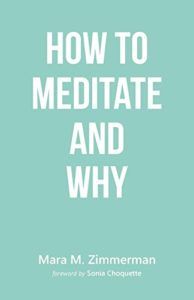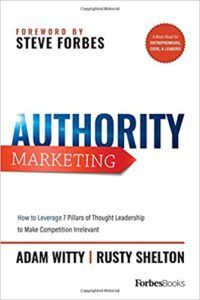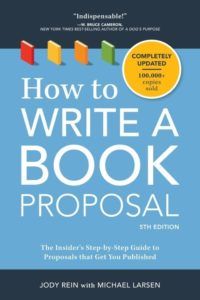“I think this book is a great idea—a fun idea. I can already imagine which publishers would respond to it.”
My morning began on a conference call with my client and a literary agent who has sold several of my clients’ books to publishers, a colleague from Harvard Medical School’s publishing course.
The high-powered agent shared her vision for the book and we loved her ideas. They expanded the potential audience and built upon the fun-factor. And I especially liked that she nudged my client in an area of great potential—special sales.
Special Sales, Think Creatively

One of the agent’s requests was to get commitments now from organizations to purchase books in bulk (also called special sales). I had suggested this to my client at an earlier stage but she didn’t feel comfortable asking her contacts at the time. She also felt sure the nonprofit organizations she had close connections with, and whose conferences she spoke at, were in no position to order books in bulk as part of their budget.
As my client and I debriefed after the call, I realized we needed to think creatively. “How about so-and-so?” I suggested. Maybe he’d buy books for the organization.
A former relative-by-marriage, actor and activist had fallen in love with the idea of my client’s book and offered his support. As both the actor-activist and my client are supporters and volunteers for one of the organizations, I suggested she ask him if he would buy 500 copies of the book at a discount (usually 50%) and donate them to the nonprofit. The nonprofit could then either sell the books full price, gift them to donors, or find another creative fundraiser for the books (perhaps a fundraiser focused around the book theme (which they were already planning) with the book as a gift to anyone who purchased tickets to the event.
“I think he’d like this…”
What are Special Sales?
Special sales in the book publishing world means selling books outside of the traditional retail channels (bookstores and Amazon). Essentially, readers can find the book in places where they buy related items, rather than having to go to a book store looking, specifically for a book. A pregnancy book in a maternity store or a book on running in a sports store offer examples of special sales.
Special sales go way beyond retail stores, however. Corporations can gift your book to employees, clients, potential clients or specifically employees in a training program or seminar. Non-profit organizations may sell your book for a profit or give it to donors to thank and honor their contributions. Associations, hospitals, universities, schools, gift shops, museum stores, catalogs and libraries are all potential opportunities for special sales.
Think creatively. Would flowers.com package your book with a bouquet on Mother’s Day (or offer it for moms allergic to flowers)?
 Zoos or museum gift shops that sell Behavioral Veterinarian Dr. Vint Virga’s The Soul of All Living Creatures, offer an excellent example of the targeted special sale, since many of his stories in the book are about zoo animals. What a perfect way to reach his target audience–the people who come to see those animals!
Zoos or museum gift shops that sell Behavioral Veterinarian Dr. Vint Virga’s The Soul of All Living Creatures, offer an excellent example of the targeted special sale, since many of his stories in the book are about zoo animals. What a perfect way to reach his target audience–the people who come to see those animals!
 Mara Zimmerman convinced the airport bookstore in San Francisco that her independently published, multi-award-winning book, How to Meditate and Why, was a perfect fit for stressed travelers and now Compass Books ( in connection with Books Inc. ) carries her book in the San Francisco airport, terminals 2 and 3.
Mara Zimmerman convinced the airport bookstore in San Francisco that her independently published, multi-award-winning book, How to Meditate and Why, was a perfect fit for stressed travelers and now Compass Books ( in connection with Books Inc. ) carries her book in the San Francisco airport, terminals 2 and 3.

While speaking at a conference, Adam Witty, co-author with Rusty Shelton of Authority Marketing, told the audience that anyone who pre-ordered 500 books or more would get a free Authority Marketing workshop from himself or Rusty for their company. Three people took advantage of the offer–that’s a minimum of 1,500 books. Rusty offers that, “The key was offering it for a limited time at a conference—it brought a sense of urgency right after a speech where the crowd was fired up.”
[bctt tweet=”Why Publishers Love Special Sales ” username=”LisaTener”]
Imagine you are a publisher. It’s a tough business. Bookstores return books that don’t sell and you actually lose money on those books. It can take significant resources to acquire a customer, but you only make some percentage of the $20 or so cost of the book. Plus, bookstore sales are on the downswing.
Enter special sales. Here’s why publishers love special sales:
- A Bigger Market: Special sales suddenly expands your market dramatically.
- More Revenue: More books sold means more money for the publisher.
- Acquisition Cost is Less: Special sales offer a focused way to bring in new customers and those customers are more likely to be repeat customers for second editions or other books the publisher brings out.
- Decreased Production Costs: The more books the publisher knows they can sell, the more books they can print, saving money on cost per book by economies of scale.
- Lower Returns: Remember that pesky problem of bookstore returns you read about earlier? Most non retail venues don’t return books. It’s not likely in their purchase agreements, nor is it something they would likely want to do.
- Print to Order: Publishers can print based on the number of books ordered and don’t have to guess about sales in a bulk situation.

And here’s why you should love special sales:
You can generally sell way more books in a few hours spent generating a special sale than you will in a multi-city visit to bookstores, a week of PR or days plugging away on social media (unless you have a crazy-big social media following).
Don’t Let Special Sales Intimidate You
People get intimidated when I suggest they line up bulk sales ahead of time. It’s uncomfortable asking people or organizations to commit to something that doesn’t yet exist. However, to publishers, it’s a huge vote of confidence that the book will earn back its advance and contribute to the publisher’s bottom line.
And special sales could be the issue that tips the scales in your favor and leads to a book deal–or even a larger advance from the publisher.
The story of my client shows that even if an organization doesn’t seem to have the resources to buy your book, you can find creative ways to make it happen through a third party devoted to your book’s mission and the mission of the organization in question.
One challenge I run into is that writers aren’t particularly comfortable asking for a commitment before it’s complete. Yet, agents and publishers want to see those commitments before making an offer.
In the case of my client this morning, I suggested she make it clear up front that the person has an easy out. “I have a request and want you to feel free to say, no.” This is a tip I learned in fundraising, back when I was executive director of Hospitality Homes. You need to feel completely comfortable with a no.
If you feel comfortable with “no” the person you ask will feel that level of comfort and the interaction should not be awkward. If you feel worried about asking, if you worry that they’ll say no, they will pick up on that fear and discomfort. One way to let go of the fear, particularly the first couple of times you ask, is just to give them permission to say no. It gives you permission for them to say no and for you to be okay with their no. Sigh of relief.
Once you ask a few times, you’ll find it much easier. Another trick? Blame your book coach. “Normally, I’d ask you this once the book is published, but I discovered that’s not how publishing works. We’re ready to send my book proposal off to agents and my book coach informed me that agents want to see bulk sales commitments in the proposal. Would you be open to looking at the proposal and considering a commitment up front?”
If you speak regularly to organizations or companies; volunteer on their behalf; play golf with the CEO; consult regularly to museums, hospitals or schools, this is a natural fit and a professionally wise request. If your book’s mission aligns with theirs, promoting, selling or gifting your book could be a big win for them. Is your brother racking his brain for the best birthday gift ever, or is your sister-in-law owe you one looking to pay back a favor? Present this opportunity to support you.
I know it can feel scary to make the ask, but I also know another adage from fundraising. If you don’t ask, you don’t get the gift.
You Can’t Fake Bulk Sales
Years ago, sometimes publishers got burned when an author claimed a commitment for special sales that never came through. That doesn’t happen now. If you claim a commitment to special sales, be prepared to have that written into your publishing contract (book deal). If the organization doesn’t come through and pony up, you’re responsible for the purchase of those books.
It’s okay. Take a deep breath. Just be honest in your proposal and up front with your potential bulk buyers. Ask for a commitment in writing if you’re not sure they truly are committed.
Focus on Your Personal Connections
 Literary agent Jody Rein, co-author with Michael Larsen of How to Write a Book Proposal, 5th edition says,
Literary agent Jody Rein, co-author with Michael Larsen of How to Write a Book Proposal, 5th edition says,
“Pre-submission special sales commitments can enhance the value of a project, but they can also be hard to obtain, so focus on those places where you have real connections versus trying to build new relationships, especially with large, branded corporations like PetSmart or Home Depot. The major publishers have special sales departments that aggressively pursue such sales with the big chains or online retailers.
“Smaller presses don’t generally have the staff to pursue special sales, so any bulk orders you can bring to those houses will be welcome.
“If you have a strong personal connection to a small chain of local stores, or to a lesser-known trade organization or nonprofit, and can get a specific commitment to purchase a quantity of books in advance, go for it!”
Read more tips on how to write a book proposal. And here are 17 Steps to Get a Book Deal. Ask your questions as a comment below or share your experience with special sales. As always, I’m grateful for your comments and social shares!

